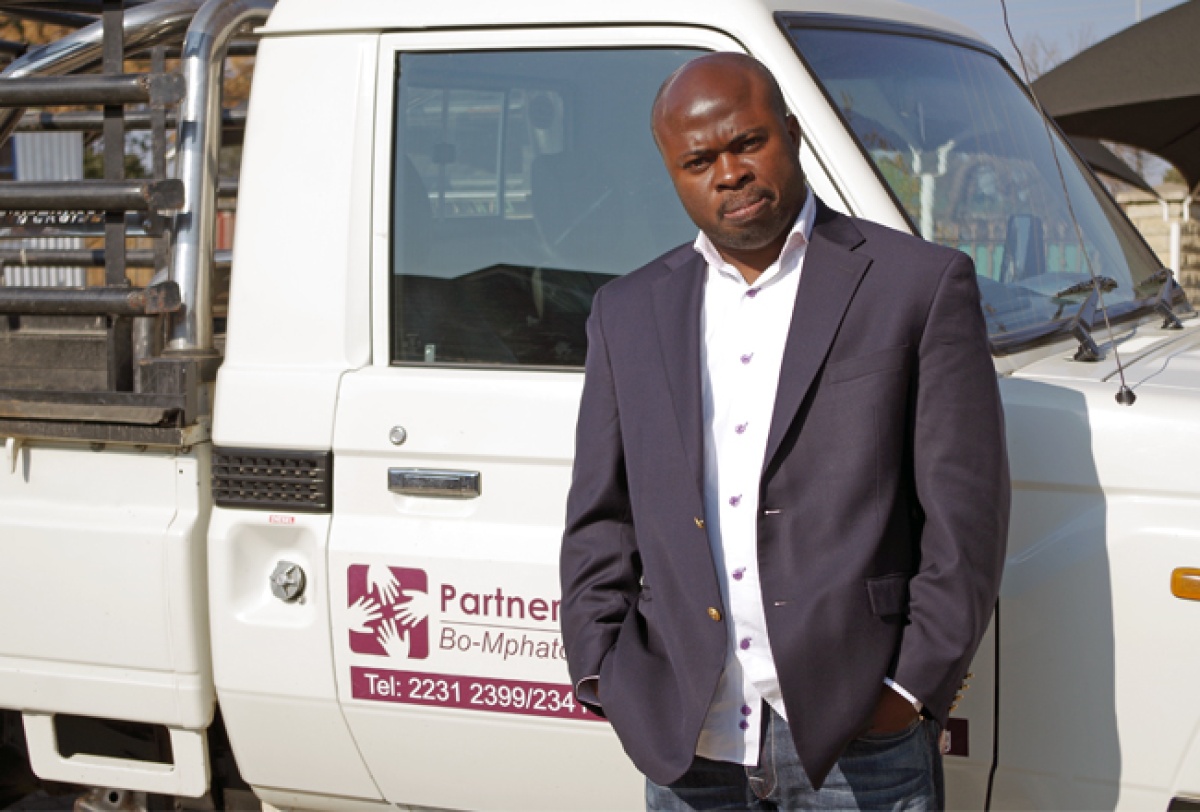Working in Global Health: Archie Ayeh
Posted on Aug 13, 2014

Starting a career in global health can be intimidating. It’s a diverse field that evolves quickly and demands collaboration across disciplines, from finance to supply chain and logistics, to computer programming.
Each month we ask a seasoned colleague to share advice for those interested in forging a career in global health. This month we asked Archie Ayeh, program manager for Partners In Health/Lesotho, to share his perspective.
I’m not a doctor or clinician. I’m originally from Ghana and was working for an audit firm as an accountant when I first met the PIH/Lesotho team at the end of 2006. PIH was just getting started in Lesotho back then, working at one mountain clinic in a village called Nohana. The idea was to scale up to several other locations in the mountains, where the most vulnerable patients live.
On my first visit, I remember seeing a man who was so sick and thin that I thought he’d be dead within a few weeks. I didn’t know much about PIH—they were enthusiastic, but to be honest, I thought they were dreamers. At the time, the HIV epidemic in Lesotho was out of control and many people were dying every day. A lot of people were losing hope, including myself. I thought HIV was going to exterminate the population.
So I began working part-time to design accounting systems that would be effective in tracking financial records but not bureaucratic and burdensome. The primary goal was to help the organization remain nimble and make sure that nothing distracted from the clinical work.
A few months after I began working, I was out at the site and I saw the same man who I saw on my first visit—the man who was thin and sick and who I thought would be dead in a few weeks. Many months had passed, and now he was strong and healthy looking, carrying food packages for other patients. I was amazed.
It’s not just clinical care—it is comprehensive support for disadvantaged people.
Still, I was skeptical about whether PIH would be able to do all that it wanted. The challenges were huge, but I didn’t know the scale of PIH’s determination. Many nongovernmental organizations (NGOs) do what is convenient. PIH does what’s necessary to save lives. It’s not just clinical care—it is comprehensive support for disadvantaged people. The staff provides treatment, but they also provide food and work in the community to empower people. It is very refreshing to see how their approach transforms lives.
So I became the full-time program manager in 2007. PIH/Lesotho was gaining momentum and we needed to design a full administrative support structure, including human resources, finance, procurement and supply chain, and maintenance. We also needed to continue building relationships with other NGOs, government ministries, and, of course, more communities. PIH/Lesotho was growing, and we were scaling up to more and more clinics in the mountains.
What I’ve learned about working in global health over the years is that you do not need to be a doctor to make a big difference. To be effective, organizations need accountants and human resource managers and all the other types of support that companies have. I don’t try to be a doctor—I make sure that the doctors have the resources they need to do their jobs well and serve our patients.
You won’t have all the answers, but you can listen and console.
When you work in global health, you need to consider social norms, customs, and practices in the country where you’re working. You may be tempted to go the one-size-fits-all approach, but you will get terrible results. You need to work in the community and listen to the people you are serving. I wasn’t always a good listener, but this job has taught me to listen. You don’t need a magic bullet, you need to listen and sympathize. You won’t have all the answers, but you can listen and console. It’s also important to think holistically about the development of the community. When you hit the right note, health care becomes a vehicle for economic development, for stronger education systems, and for social development.
Do I miss working for the big audit firms and the world of finance? No. I never want to go back. Working for the people is amazing. Poverty is a symptom of powerlessness. PIH empowers people. It gives them a voice.
Read more from the Working in Global Health series:
Working in Global Health: Elizabeth Barrera-Cancedda

